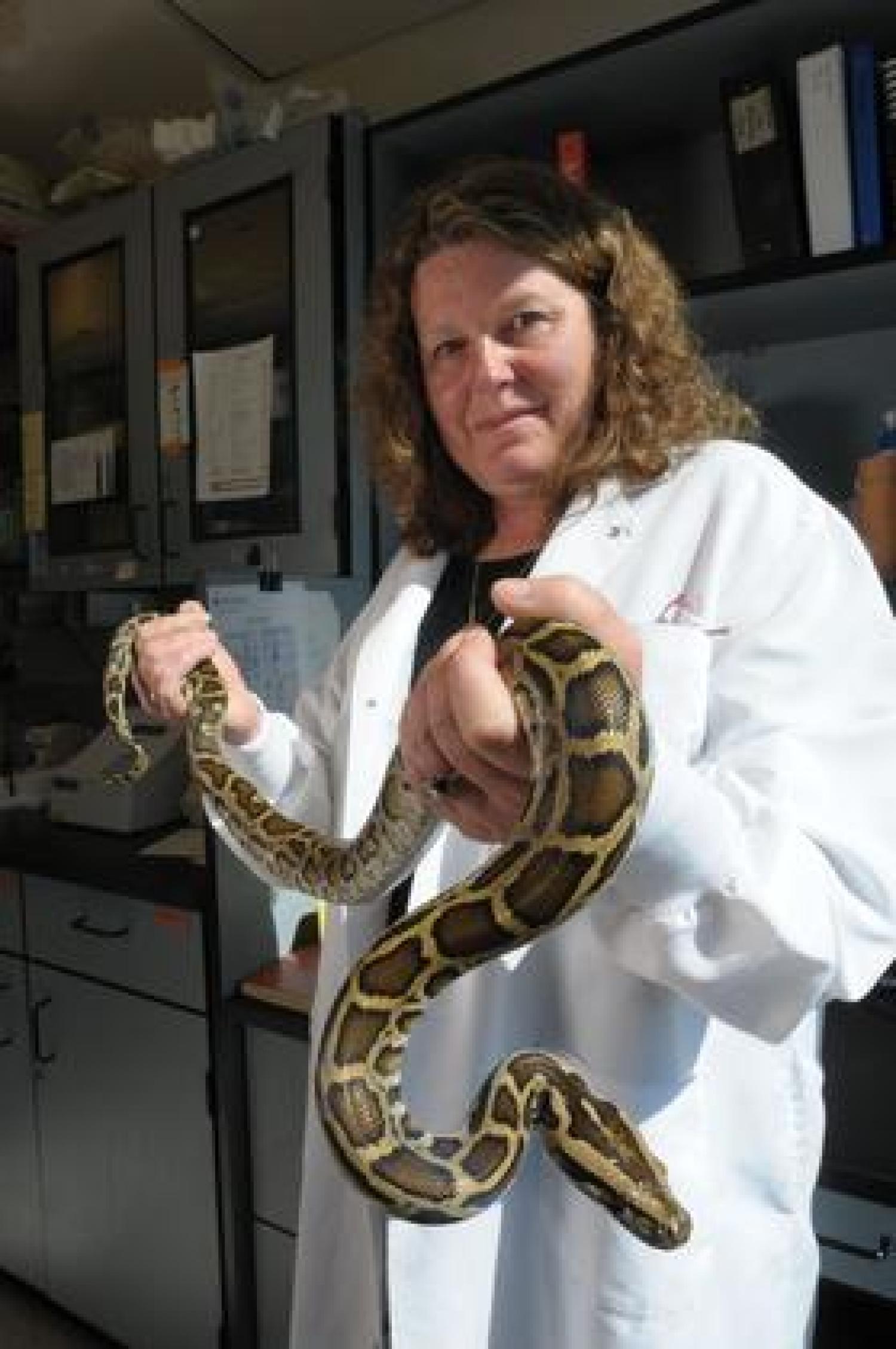Leslie Leinwand Discusses the Python Project

On Science Friday: Leslie Leinwand discusses the Python Project
On December 9, Biofrontiers Institute's Chief Scientific Officer Leslie Leinwand shared some scaly tales of her research with Burmese pythons on NPR's Science Friday. During the interview she shared the results of a paper she published in Science magazine earlier this year showing that huge amounts of fatty acids circulating in the bloodstreams of feeding pythons promote healthy heart growth, results that may have implications for treating human heart disease.
Leinwand and her research team found the amount of triglycerides--the main constituent of natural fats and oils--in the blood of Burmese pythons one day after eating increased by more than fiftyfold. Despite the massive amount of fatty acids in the python bloodstream there was no evidence of fat deposition in the heart, and the researchers also saw an increase in the activity of a key enzyme known to protect the heart from damage.
After identifying the chemical make-up of blood plasma in fed pythons, researchers injected fasting pythons with either "fed python" blood plasma or a reconstituted fatty acid mixture they developed to mimic the plasma. In both cases, the pythons showed increased heart growth and indicators of cardiac health. The team took the experiments a step further by injecting mice with either fed python plasma or the fatty acid mixture, with the same results.
You can listen to the interview here (download the mp3 file on the upper, left side of the page). Or you can download the podcast on iTunes.
Related content

